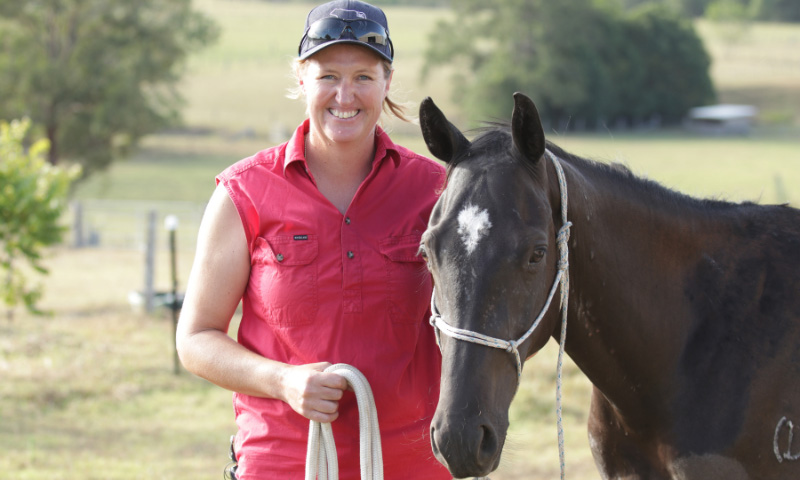A ‘Rocky’ Road To Recovery
Product Range: MegaMin Equine Enhancer & MegaMin Bone Defender
Region: Kempsey, NSW
- Improved calcium to oxalate ratio in diet
- Improved Bighead symptoms
When Peter and Karen Donaldson moved from inland NSW to Kempsey on the NSW Coast a few years ago they received a lot of advice on the troubles they could expect from moving Beef cattle to the Coast, but no one told them about the issues that could arise with horses grazing the grasses grown in the area.
The Donaldson’s new place contains pasture that consists mainly of Kikuyu and Paspalum and when Karen had to care for an injured horse 24/7 she turned her other horses out to pasture, including her two-year old ASH gelding, Rockstar.
Rocky, as he is affectionately known, had been orphaned at 5 months and had been doing really well until he was turned out to graze the Kikuyu in January 2018. It was in March of that year that Karen discovered her beloved horse had developed significant facial swelling between his eyes, his behaviour had changed, and he hated to be touched on his head. Karen had grown up on the NSW Coast but had forgotten that horses can develop a significant calcium deficiency when grazing sub-tropical grasses like Kikuyu. Grasses such as Kikuyu, Buffel, Setaria, Couch, Para, Purple Pigeon, Pangola, Signal and Green Panic contain high levels of a compound called oxalate that blocks calcium from being absorbed and can lead to a condition commonly known as Bighead.
Karen recognised Rocky’s symptoms as being those of Bighead so she immediately started adding limestone and di-calcium phosphate to Rocky’s feed, but never really knew how much of the powder mix to give him. Unfortunately, Rocky’s symptoms didn’t appear to be improving which led Karen to make contact with AgSolutions for help.
AgSolutions’ Technical Advisor, Shannon Godwin, took Karen’s call and together they started investigating Rocky’s diet. Karen recalls, “Shannon went through absolutely everything he was being fed, from the grass to the supplements and I had to weigh everything so we could work out what he was missing out on.”
Rocky was put on MegaMin Equine Enhancer to balance the trace minerals lacking in the pasture and MegaMin Bone Defender to improve the calcium to oxalate ratio. Shannon says, “it is really getting the calcium to oxalate ratio correct and making sure the horse’s diet is containing at least 0.5 parts calcium to 1 part oxalate that is important to help reduce the risk of horses developing Bighead. In addition, the whole diet has to be balanced with the correct calcium to phosphorus and calcium to magnesium ratios as well.” Because Rocky had symptoms of Bighead it was important that Karen fed calcium at around 200% to 400% of his requirements for 12 months to help him recover.
Rocky started on the MegaMin Equine Enhancer and Bone Defender in May 2018 and when AgSolutions visited the Donaldsons in January 2019, Karen was excited to report that the bump between Rocky’s eyes had almost completely disappeared.
Karen concludes, “I’m really happy with the MegaMin Equine Enhancer and Bone Defender as the results speak for themselves – the swelling on his face has almost completely gone, he has grown, his coat is in much better condition and I can touch his face again!”
Nothing pleases the Team at AgSolutions more than being able to help our clients achieve successful outcomes for themselves and their animals. Thank you to Karen and Peter for sharing Rocky’s story. If you have horses that are grazing high oxalate containing sub-tropical grasses such as Kikuyu, Setaria, Buffel, Green Panic, Para, Guinea, Purple Pigeon and Pangola it is very important that they are given a good quality calcium supplement at the right amount to balance the calcium to oxalate ratio to help reduce the risk of them developing Bighead Disease. For more information please contact AgSolutions on 1800 81 57 57.
